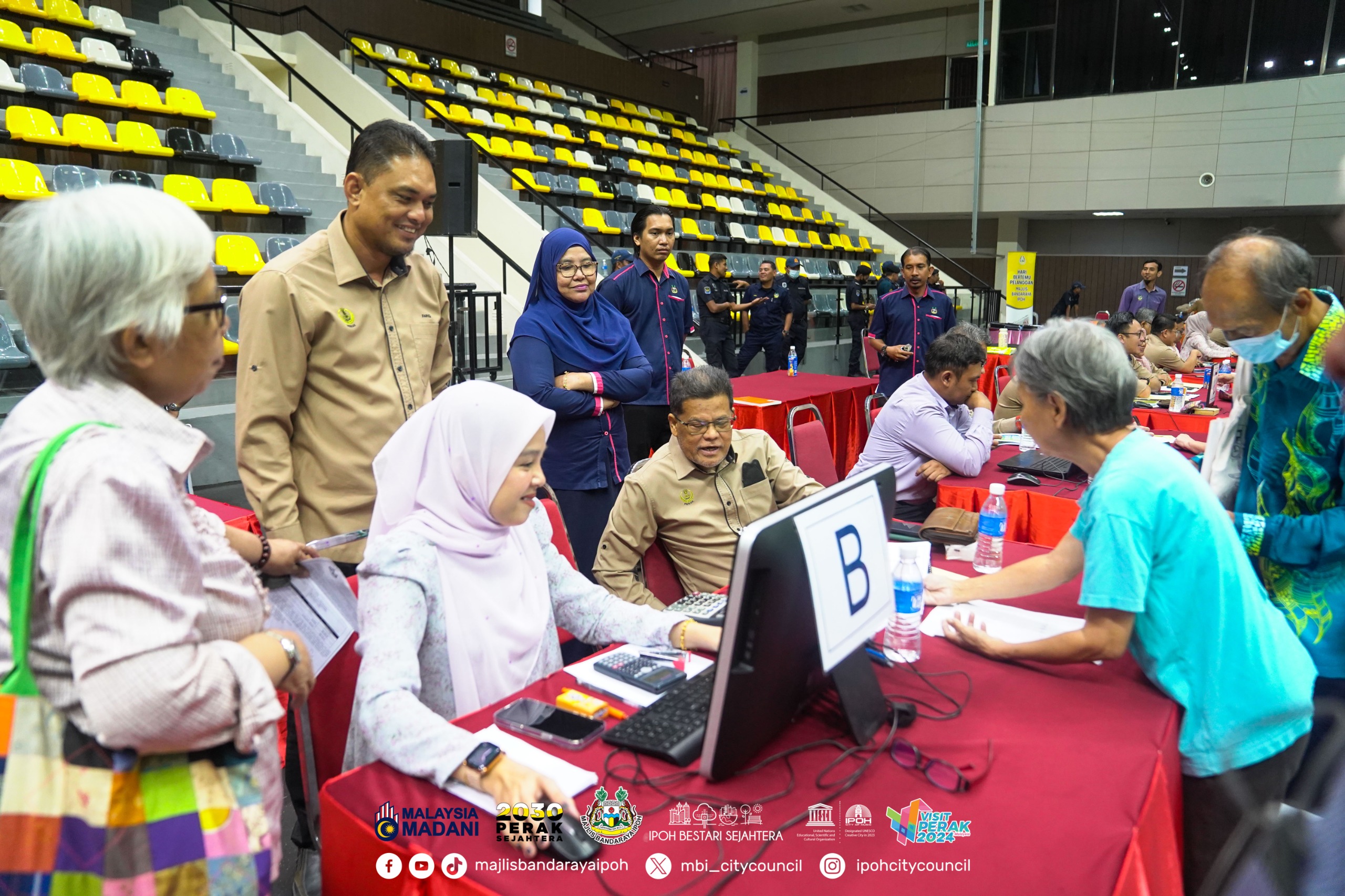

By: Rosli Mansor Ahmad Razali
IPOH – The Ipoh City Council (MBI) will summon property owners who wish to appeal against the new assessment rates, with decisions to be based on relevant supporting documents provided.
This statement comes in response to growing concerns among Ipoh residents over the New Valuation List for assessment rates issued by MBI, a topic that has sparked widespread debate.


Ipoh Mayor Dato’ Rumaizi Baharin acknowledged the concerns and assured residents that detailed clarifications would be provided.
“The New Valuation List is implemented under Section 137 of the Local Government Act 1976 (Act 171) to ensure that assessment rates align with current realities.
“The rental values in the New Valuation List are based on 2024 data, not projected future rental values.
“The current valuation benchmark or ‘tone of the list’ is still set to 1982, which was 42 years ago. This valuation is no longer relevant to cover the maintenance and administrative costs within MBI’s jurisdiction. With this implementation, rental values are now based on the latest data from credible sources, including Malaysia’s NAPIC,” he said in response to a statement by Ipoh City Watch President, Dr. Richard Ng, recently published on the Ipoh Echo/Peraktastic portal.
He further added that the annual tax rates for residential and commercial properties have been reduced from 16.5% to 9%. While still considered high, this rate has been subsidized to balance the increase in the new Annual Value.
“To control tax increases, the state authorities have approved a capping mechanism, limiting the maximum hike between 15% and 25%,” he added.


Operational Costs and Budget Deficit
MBI is also facing increased financial demands due to the expansion of its administrative area from 347 square kilometres to 643 square kilometres, along with a growing number of properties, now exceeding 318,000.
“Since 2021, MBI has implemented a deficit budget strategy through 2025, with a total deficit amounting to RM50 million. The excess expenditure for operations and development has been financed through the council’s reserves,” he said.
He noted that Ipoh’s population, currently estimated at 857,000 with an annual growth rate of 1.77%, presents additional challenges for MBI in meeting the needs of its residents.
This initiative is expected to ensure the sustainable development of the city while supporting the MADANI Economy framework without compromising MBI’s responsibilities to its citizens.




